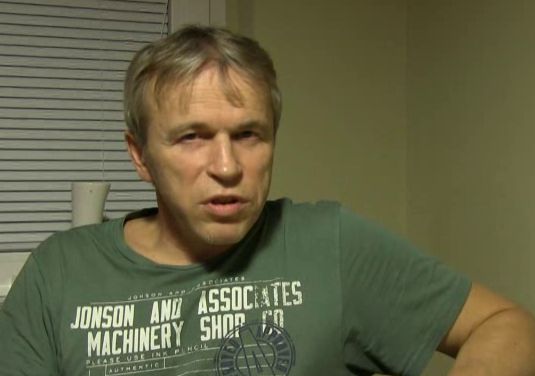Founding a community in Robeč with the Princ family in 1980

Download image
Petr “Ústí” Kreibich was born in Louny on 25 June 1958. He spent his youth in Ústí nad Labem. His father was a crane operator and a rank-and-file member of the Communist Party. His mother was a labourer in various jobs and later a clerk at the municipal authority. Aged 15, Kreibich entered a grammar school in Prague. He learned about Charter 77 during his studies but did not sign it until later. After graduation, he worked as a librarian at the Municipal Library in Prague for half a year and then at the post office for about two years. It was then that he got to know better the people from the Prague dissent who disseminated Charter documents. The StB summoned him for interrogation because of these contacts and he experienced his first - and luckily his last - 48-hour detention in Bartolomějská. In late 1970s, he met a community of Charter signatories living in Řepčice through his friends from northern Bohemia. This ‘detour’ way, he met the main Charter persons including the Hofmann brothers and the Princ family later on. Together, they founded a community in Robeč in the Litoměřice area in 1980, leasing a dilapidated parsonage. They repaired the house and organised cultural events, attended by young people mainly from Česká Lípa. Petr Kreibich was receiving disability pension due to an eye defect, so unlike others he did not have to go to work regularly. He worked occasional part-time jobs and took care of the house. Later on, he worked with Geofyzika as a surveryor’s assistant. The StB was obviously interested in what was happening in Robeč and, two years later, forced the church to stop renting the building to the community. Following a police raid in December 1981, the dwellers had to leave the parsonage from one day to the next. Kreibich and the others decided to buy another common house, this time in Mastířovice. It was a small farm and the community partly functioned as a farm raising pets and livestock. About 12 adults and children lived on the farm, and nine members of the community were Charter signatories. This is when Kreibich signed the Charter, specifically in 1983. The community lived under constant surveillance by the StB. Occasionally they organized exhibitions and concerts of songwriters, commuted to protests in Prague and distributed banned literature. Kreibich took care of the farm and eventually found a job in a sewage treatment plant where he stayed for more than three years. The StB took issue with Mastířovice as well, and the farm was expropriated under the pretext of establishing a civil defence facility and eventually fell into disrepair. Although Kreibich was summoned for questioning from time to time, he never ended up in court. In the mid-1980s, he was offered emigration by the StB, but he never seriously considered it. He moved to Protivín in Southern Bohemia in 1988, getting a job with the local farming cooperative. After the collapse of communism, he joined the Ministry of the Interior’s Refugee Department in 1991. Having worked as an economist in the refugee camp in Ústí nad Labem for just four months, he became its head and ran the camp until 2001. After that, he worked on the residency agenda with the Ministry of the Interior. He settled in Prague.

